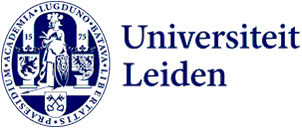
Talent for languages test: National Linguistics Olympiad puts language sense to the test for high school students
How would you convert Egyptian hieroglyphs into Latin script? And what is actually the correct translation of dishes on a Vietnamese menu? On Saturday 28 January, high school students from all over the Netherlands will come to Leiden to ponder a series of language-related puzzles. Their goal? To win the final of the national Linguistics Olympiad.
Melle Groen was one of the pupils in 2017 who spent a Saturday trying his best to find logic in all kinds of language systems, from Sinhalese spoken in Sri Lanka to modern Dutch. These days, as a Linguistics student, he is one of the assignment makers. He is looking forward to the upcoming edition. 'One of the other questioners has made an assignment that is a bit different from the others. I think it’s a very fun and creative question, so I’m curious to see what the participants will think of it. And of course I would like to know how my own assignment is doing. For a previous edition, I had created a question that turned out to be so difficult that only one participant got the right answer. This year, we tested that better.'
Making friends during the international final
That is not to say it will be a breeze for contestants. The tasks on word, sentence and writing systems in all possible languages are designed in such a way that even the best candidates are unlikely to get more than three-quarters of the answers right. This keeps the contest challenging for participants and separates the best from the rest. Indeed, the top four participants are allowed to advance to the International Linguistics Olympiad, to be held in Bulgaria this summer.
‘I was good enough in my year to be allowed to go to the International Linguistics Olympiad,' recalls Melle, who will accompany the Dutch delegation this year. 'That was a fantastic experience. The puzzles are important, of course, but there are also all kinds of activities and you meet people from other countries. I made friends during that week that I am still in touch with.'
-

The Dutch team of 2022 (Melle took part in another year.) -

The award ceremony of the International Linguistics Olympiad in 2022 -

Dutch Pepijn ranked high last year!
Melles tip: ‘Lees goed’
Voor de deelnemers die dat ook graag zouden willen meemaken, heeft de veteraan nog wel wat tips. ‘Het is sowieso slim om alles eerst goed door te lezen, want anders mis je misschien belangrijke informatie. Je hebt ook vaak een opgave waarin je een paar zinnetjes in een vreemde taal krijgt, met de vertaling erbij. Vervolgens moet je zelf aan de slag met een aantal nieuwe zinnetjes. Dan kan het helpen om bij het maken van de opgave naar de voorbeeldzinnen én de zinnen uit de opgave te kijken. Op die manier vind je sneller het systeem dat je nodig hebt. En verder helpt het om er niet te veel over te stressen. De Taalkundeolympiade is vooral leuk, geen toets die je perfect moet doen.’
De Taalkundeolympiade wordt dit jaar voor de 23e keer georganiseerd. Docenten en studenten van de opleiding Taalwetenschap maken samen opgaven over de meest uiteenlopende oude en moderne talen en schriftsoorten, die scholieren thuis of op school kunnen oplossen. De beste deelnemers uit deze voorrondes worden vervolgens uitgenodigd voor een finaledag aan de Universiteit Leiden.
